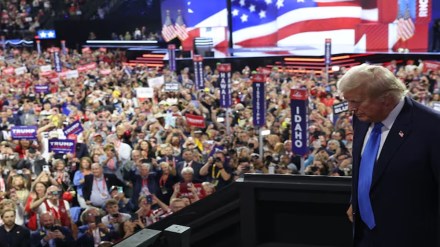By Amol Agrawal
In 1925, John Maynard Keynes wrote The Economic Consequences of Mr Churchill criticising the monetary policies of the then British government. Nearly 100 years later, Keynes’ article resonates strongly today. Before making comparisons, we need some background.
Ever since humanity invented money, the temptation to create a quick fortune has ironically only led to misfortune. In 1717, the United Kingdom, seeking a solution, fixed the price of its currency to silver under the Master of the Mint Issac Newton. Under this new system, money could be created only based on discovering more silver, which was relatively scarce. In 1819, silver was replaced by gold, leading to the famous gold standard. The system was successful in reining in inflation, leading other countries to adopt it and laying the foundations of globalisation from 1880 to 1913.
In 1914, the UK suspended the gold standard due to the First World War. The war needed spending, which was not allowed under the gold standard. After WWI, a British government-commissioned report recommended not just restoring the gold standard, but also at the pre-war price. After much discussion, then Chancellor Winston Churchill restored the pre-war gold standard in 1925.
The decision prompted Keynes to write the aforementioned famous article as a critique. It was not the first time Keynes had used the phrase “economic consequences”. In 1920, he wrote his famous book The Economic Consequences of Peace, deploring the harsh economic reparations on Germany. The book was equally prophetic as it paved the way for the rise of Nazism in Germany.
In the 1925 article, Keynes argued that the high-inflation years of the war implied devaluation of the currency. However, by restoring it to the pre-war level, the currency would be overvalued. This would mean, in Keynes’s words, “whenever we sell anything abroad, either the foreign buyer has to pay 10 per cent more in his money or we have to accept 10 per cent less in our money”. Keynes argued prophetically that the economic consequences of the decision would be the UK economy becoming uncompetitive, deflation in wages and prices, and severe unemployment.
Nearly 100 years after the Churchill article, the suave world-watcher Keynes would be amazed at how his argument resonates strongly even today. He could simply tweak the title of his article to The Economic Consequences of Mr. Trump.
Donald Trump’s re-election as the 47th President of the United States of America has rocked world politics and economics. As the 45th President, Trump caused a lot of stir, given his very different ideas about the US role in geopolitics and geoeconomics. His ideology is based on “Making America Great Again”, with which he wants to redraw American priorities. It implies cutting down US spending on the North Atlantic Treaty Organization, imposing high tariffs to reduce American trade deficit, cutting budget deficits, making the government efficient, and so on. He has already announced policies and appointed people for achieving his agenda, causing a lot of anxiety in the world economy yet again.
Keynes would surely be amused at how we have learnt so little from economic history. The policies of Trump, just like that of Churchill, are aimed at restoring economic glory, but will end up doing the opposite. The higher tariffs will lower imports but also lead to higher cost of imports, impacting both consumers and manufacturers that import from China. Other countries might also retaliate by increasing their tariffs, disrupting the world trade order which will also impact US exports. “Beggar thy neighbour” policies eventually make everyone a beggar, as we saw during the Great Depression. Trump’s policies to cut government spending are based on the philosophy of Keynes’s rival Friedrich Hayek. However, establishing a department to achieve the objective just undoes the policy. There has also been a huge rally in bitcoin prices, tracking Trump’s appointment of a crypto supporter as the chair of the Securities and Exchange Commission. Ideally, the expectations of a rising US dollar should lead to lower bitcoin prices. Trump has also threatened the BRICS economies with higher tariffs if they promote a BRICS currency. Apart from disrupting trade, globalisation and the dollar, Trump is also expected to jeopardise the limited progress made on climate negotiations. It is just an endless list of self-goals.
Keynes would also have noted a worrying similarity between the US’ inability to play a leadership role in the early 21st century and the UK’s inability to do the same in the early 20th century. A lack of leadership policies only created more fissures, taking the world towards multiple conflicts and wars. In the end, Keynes himself had to try and restore world peace by leading the discussions in Bretton Woods, creating the World Bank and the International Monetary Fund (IMF).
Let me end the article with an IMF story. In 2019, the IMF published an article imagining Keynes visiting the institution he once created on its 75th anniversary. In it, Keynes was amazed at how much the world had changed in 75 years: the UK slipping in the global hierarchy, currencies floating, and women not just working at the IMF but leading it (Christine Lagarde headed it in 2019). Seeing how the world has panned out since 2019, Keynes would be both tickled and concerned with how his books and article remain prophetic, even 100 years later.
The author teaches at Ahmedabad University.
Disclaimer: Views expressed are personal and do not reflect the official position or policy of FinancialExpress.com. Reproducing this content without permission is prohibited.
